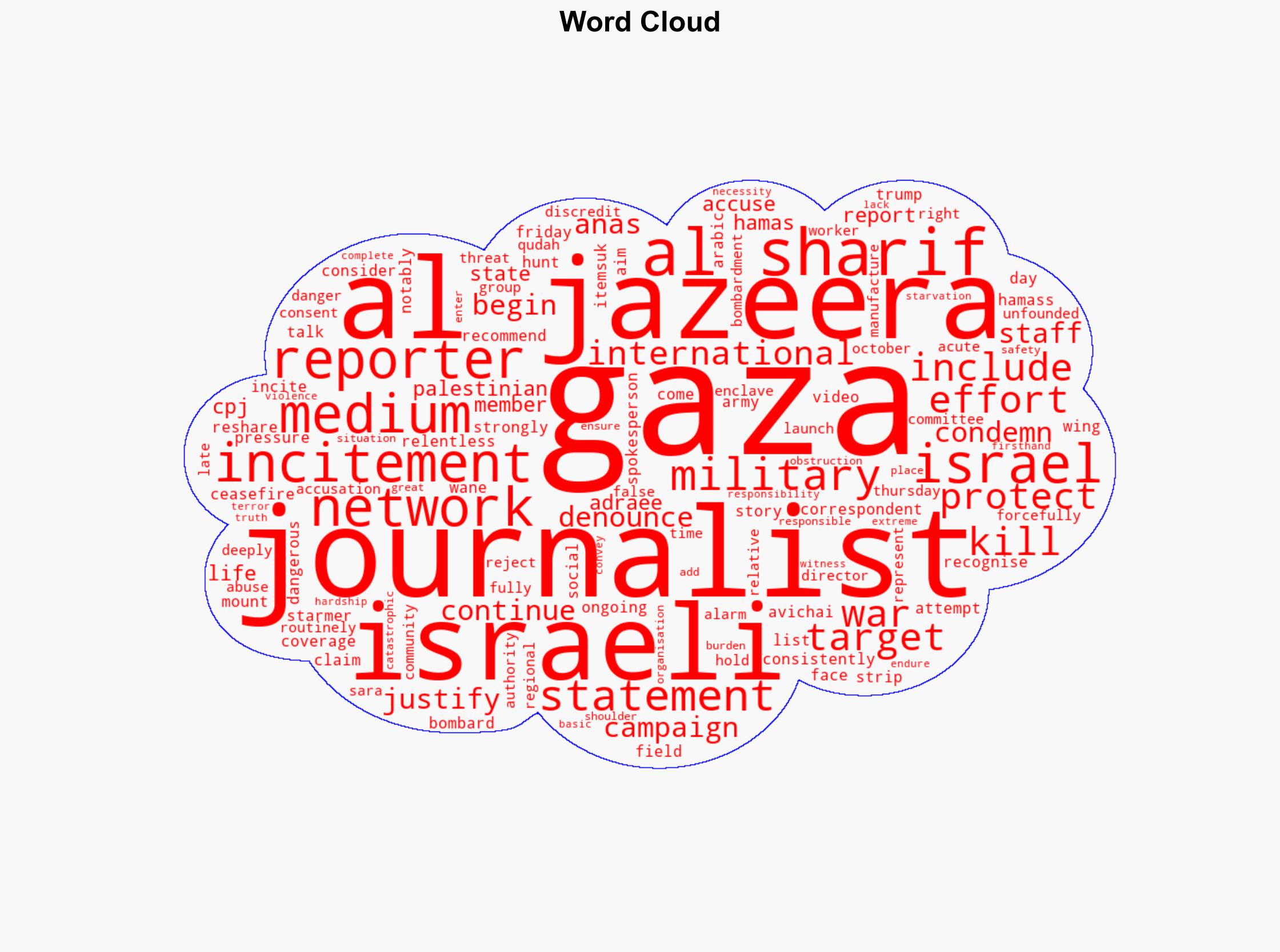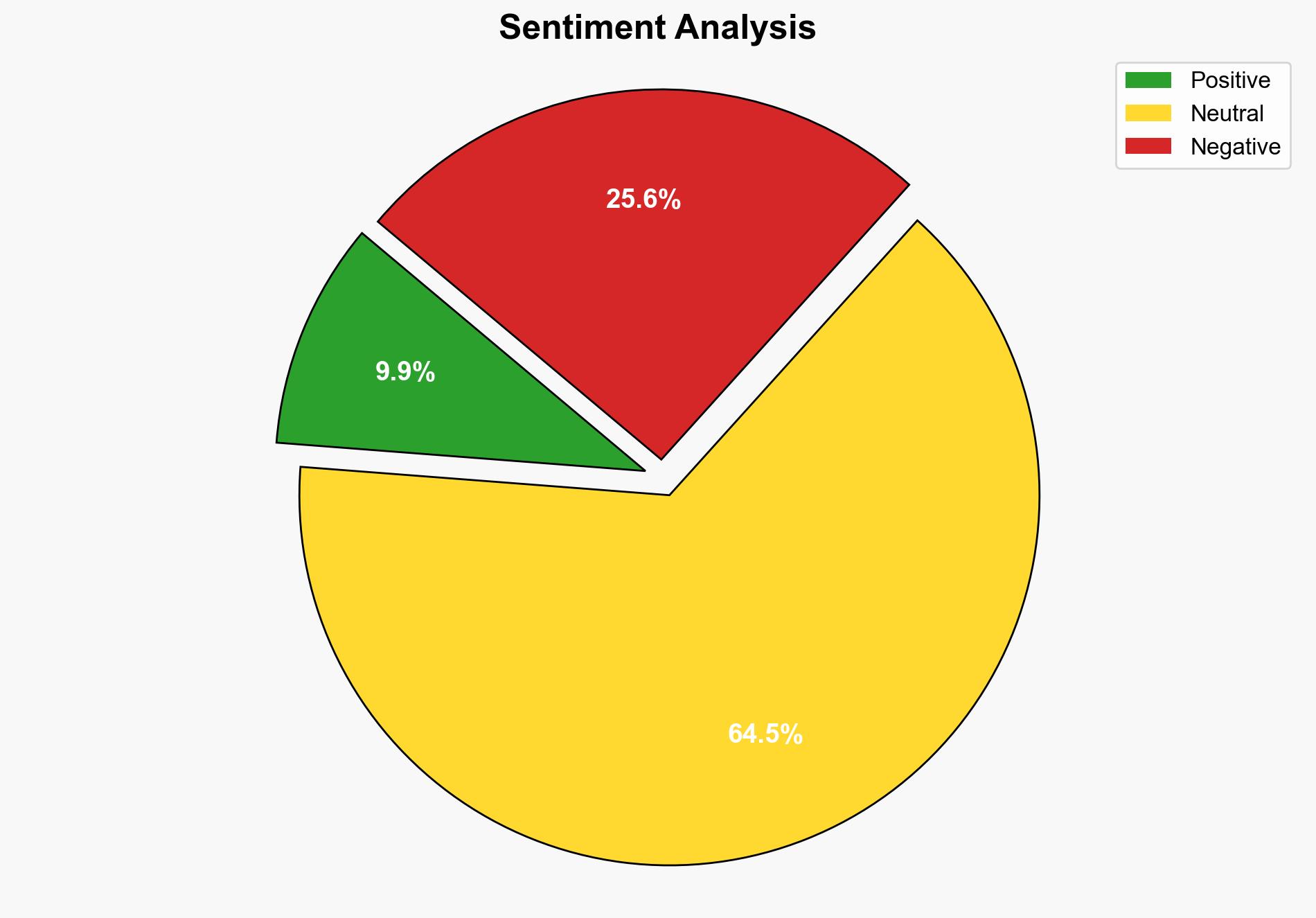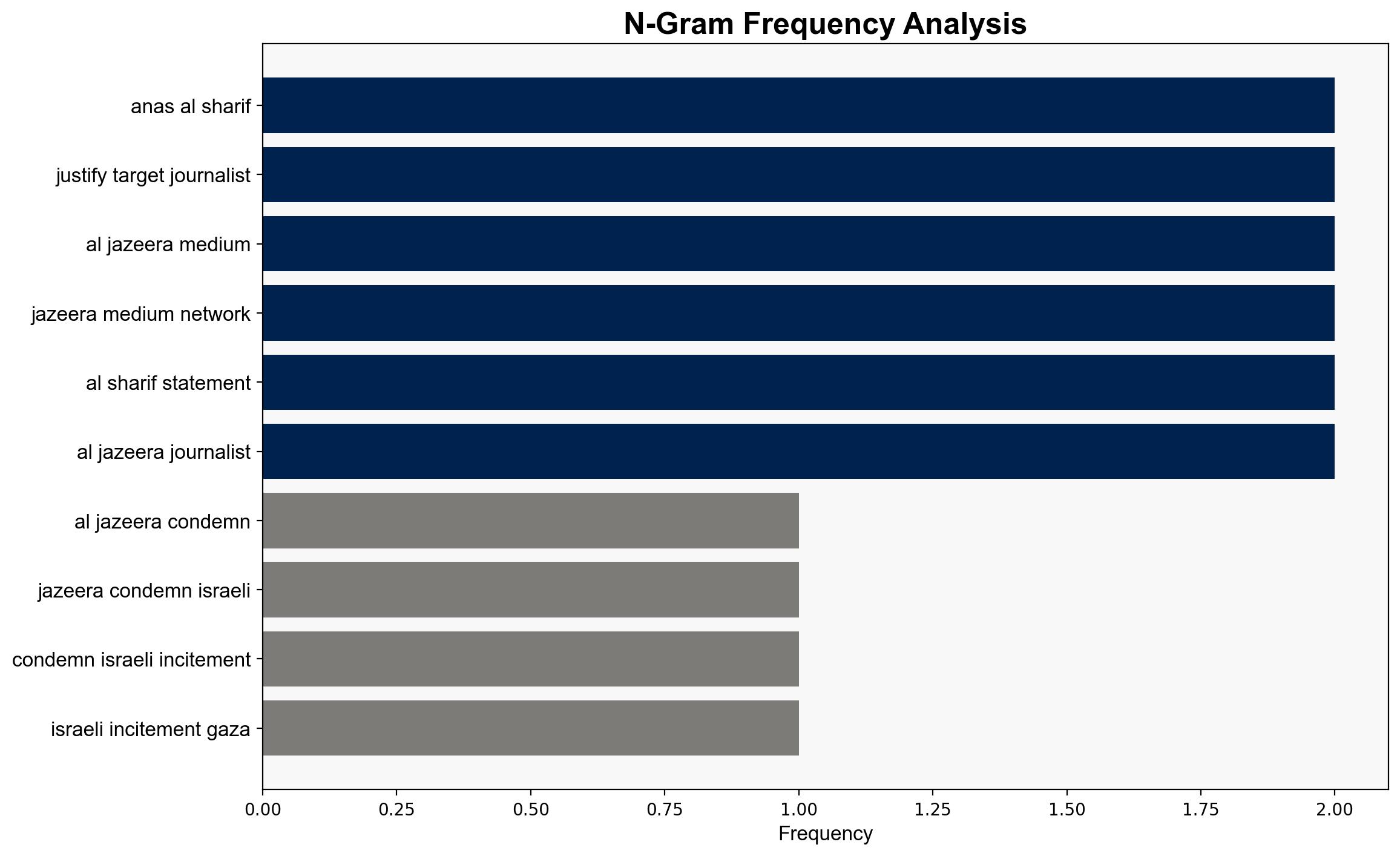Al Jazeera condemns Israeli incitement against Gaza reporter Anas al-Sharif – Al Jazeera English
Published on: 2025-07-25
Intelligence Report: Al Jazeera condemns Israeli incitement against Gaza reporter Anas al-Sharif – Al Jazeera English
1. BLUF (Bottom Line Up Front)
The most supported hypothesis is that the Israeli incitement against Anas al-Sharif is part of a broader strategy to delegitimize journalistic reporting from Gaza, potentially to control the narrative and justify military actions. Confidence in this hypothesis is moderate due to the complexity of the geopolitical context and the presence of competing narratives. Recommended action includes diplomatic engagement to ensure the protection of journalists and uphold press freedom.
2. Competing Hypotheses
1. **Hypothesis A**: The incitement campaign against Anas al-Sharif is a deliberate Israeli strategy to delegitimize and potentially justify targeting journalists in Gaza, aiming to control the narrative and reduce international scrutiny.
2. **Hypothesis B**: The incitement is primarily a defensive measure by Israel, driven by genuine security concerns about journalists being affiliated with hostile entities like Hamas, rather than a broader strategy to suppress media freedom.
Using Analysis of Competing Hypotheses (ACH), Hypothesis A is better supported by the pattern of accusations against journalists and the historical context of media suppression. Hypothesis B lacks substantial evidence, as accusations are often refuted and lack corroboration.
3. Key Assumptions and Red Flags
– **Assumptions**: Hypothesis A assumes that Israel has a strategic interest in controlling media narratives from Gaza. Hypothesis B assumes that security concerns are the primary motivator for Israeli actions.
– **Red Flags**: The lack of independent verification of claims against journalists and the potential bias in media reports. The possibility of cognitive bias in interpreting actions as either defensive or aggressive.
– **Blind Spots**: Limited access to Gaza for independent journalists constrains the ability to verify narratives, potentially skewing perceptions.
4. Implications and Strategic Risks
– **Geopolitical Risks**: Escalation of tensions between Israel and media networks could lead to broader international condemnation and diplomatic fallout.
– **Psychological Impact**: Intimidation of journalists may lead to self-censorship, affecting the quality and breadth of reporting from conflict zones.
– **Cascading Threats**: Continued targeting of journalists could provoke retaliatory actions or increased support for Palestinian narratives internationally.
5. Recommendations and Outlook
- Engage in diplomatic efforts to reinforce the protection of journalists and uphold international norms on press freedom.
- Encourage independent investigations into allegations against journalists to provide transparency and accountability.
- Scenario Projections:
- **Best Case**: Diplomatic interventions lead to reduced tensions and improved safety for journalists.
- **Worst Case**: Escalation of threats against journalists results in increased violence and international condemnation.
- **Most Likely**: Continued tension with sporadic incidents of targeting journalists, maintaining the status quo.
6. Key Individuals and Entities
– Anas al-Sharif
– Avichai Adraee
– Al Jazeera
– Israeli Military
7. Thematic Tags
national security threats, press freedom, geopolitical tensions, media integrity




